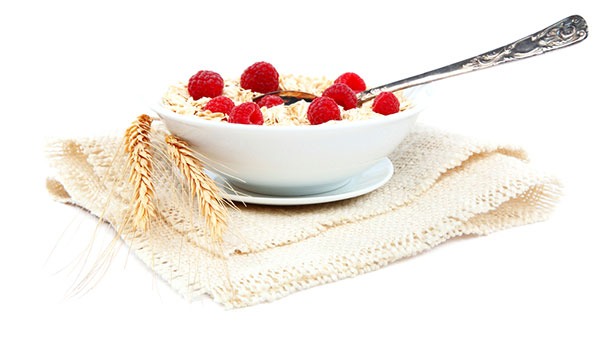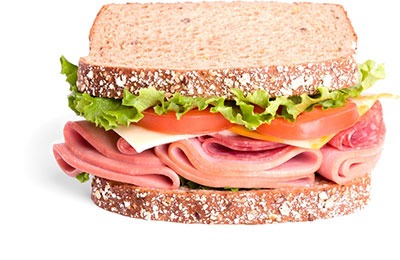Eating on Competition Day with Track and Field Olympian Lashinda Demus

Wondering what to eat before a workout or event? Or how to fuel for the best results on competition day? As an elite runner and Olympic medalist in the 400m hurdles, my nutrition approach on competition day was pretty simple and varied based on whether I was competing during the day or at night.
If competition was in the morning, I would make sure to have two hours for my food to digest before the start of my warm up. My first meal was usually oatmeal with fruit, and around 1.5 hours before my race, I would have another protein shake of some sort.

 If my race was in the evening, my last meal would be five hours before my warm up started, since I would’ve also already had breakfast and lunch that day. You don’t want a full stomach when going into competition!
If my race was in the evening, my last meal would be five hours before my warm up started, since I would’ve also already had breakfast and lunch that day. You don’t want a full stomach when going into competition!
For events at night, my day would start with a full breakfast of about 800-1,000 calories, with my go-to meal including bacon, eggs, fruit, and toast. At lunch, I would do a deli sandwich or salad with meat to get a good mix of carbs, protein, and nutrients. I also incorporated snacks! Some light snack options that worked great for me on competition day were apples and peanut butter, turkey or beef jerky, and tuna and crackers.
THE SCIENCE: Carbohydrate intake before and after exercise can help to restore sub-optimal glycogen stores, which is critical for prolonged periods of exercise. While allowing for personal preferences and physiological factors, the pre-event meal should be high in carbohydrates, non-greasy, and readily digestible. Fatty foods should be limited as they delay the emptying time of the stomach and take longer to digest.
When I first started competing professionally, my stomach wouldn’t allow me to eat before I worked out or competed and I’m confident that this stifled my success as an athlete. Once I was able to incorporate fuel for my body before running, I got the most out of my workouts, which in turn led to great performances. The key is experimenting and finding what works best for YOUR body…I know it was a game changer for me!
What is food-first nutrition?
Every athlete wants to reach their peak performance, which often means pushing harder and longer in training and in competition. In the quest to reach their maximum potential, many athletes know that good nutrition is critical, but they may also look to the latest supplements and trendy diet regimens to give them that extra boost.
Some athletes, on the other hand, have found that a food-first approach is all they need to achieve peak performance. While some athletes may need to supplement their dietary intake because of a medical condition, many athletes can properly fuel their bodies and meet all their bodies’ needs with the right food.
In the Food-First Nutrition series, Olympians, Paralympians, and elite athletes share how they maintain the strength and energy they need to compete at the highest levels of sport through a food first approach. For more information on the best foods for athletes, check out the TrueSport Nutrition Guide.
About Lashinda Demus
A two-time Olympian and silver medalist in the 400m hurdles, Lashinda Demus enjoyed a long career at the highest levels of track and field, with one of her first major accolades coming in 2002 when she became NCAA outdoor champion. Shortly after, Demus earned a spot at her first Olympic Games in Athens in 2004. She continued to find success in the sport, and at the 2011 World Championship in Athletics, went on to break the American record in the 400m hurdles, which still stands today. At the 2012 Olympic Games, she earned the silver medal in the 400m hurdles and concluded her career as a four-time USA Outdoor 400m hurdle champion.
Read more Spirit of Sport blog posts



